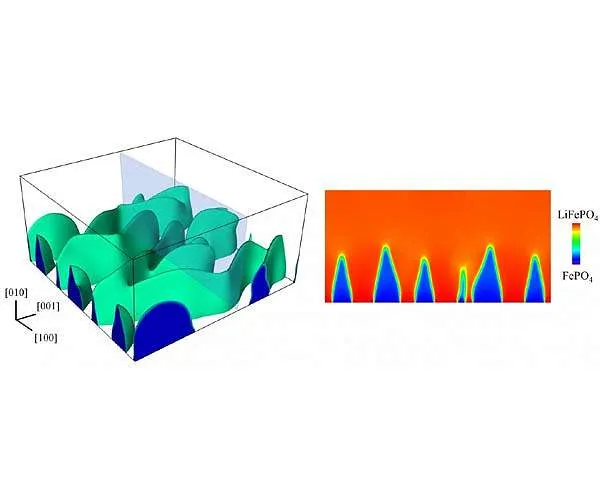In search of a golden mean for boosting battery performance
- The research team from Rice University has found out that too many defects intentionally created in crystalline lattice can lead to lithium-ion battery degradation.

Recently, the Rice scientific group has discovered that introducing particular defects into cathodes allows Li to travel more efficiently, which can boost performance of a battery hundreds of times. However, the latest research has made the scientist cautious. If charged and discharged too fast, a defected cathode can get fractured.
The X ray image of the cathode has demonstrated finger-shaped boundaries between the areas rich and poor of lithium. This resembles the effect resulted from water injection into oil. As the researchers explain, stress makes originally smooth boundaries instable and wavelike. In its turn, the boundary deformation enhances the stress, which leads to cracking.
The so-called antisite defects, when iron particles occupy space meant for lithium, increases instability. The researchers have concluded they have to look for a golden mean between a sufficient number of antisites for improved performance and their excessive quantity, which can boost instability.
Also read

